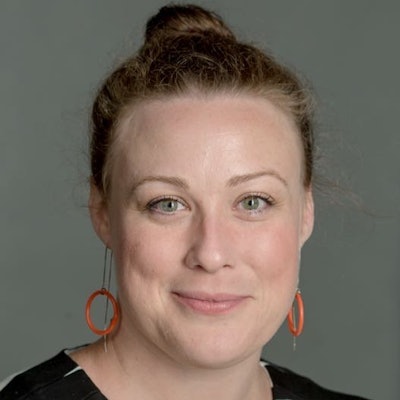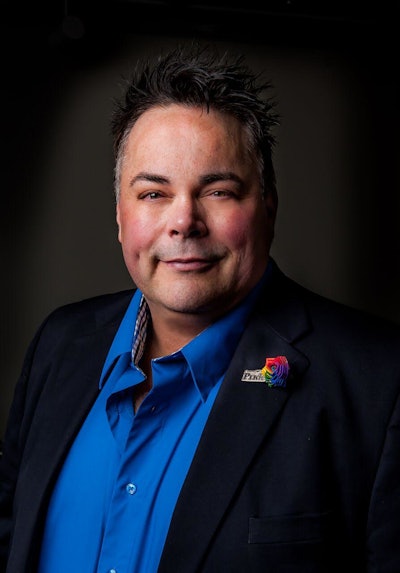When Reagan Gonzalez began applying to law schools, she didn’t imagine that she would have to research the laws of the states to which she was thinking about moving. But this year’s wave of anti-LGBTQ+ legislation and proposals—the American Civil Liberties Union is currently tracking 388 bills—wound up shaping her decision in ways that she didn’t anticipate. Gonzalez, who is queer and who typically wears traditionally masculine clothing, had been excited to apply to Vanderbilt University, in Tennessee, and the University of Miami, in Florida. But now, after each state passed laws restricting LGBTQ+ rights, Gonzalez plans to cross them off her list.
“I didn’t think that things would get so scary so quickly,” she said. “You don’t feel safe when you start seeing all of these laws getting passed that are attacking the person that you are.”
Gonzalez is one of a growing number of students who has been forced to alter her college plans out of concern for her well-being.
Echo Bodell is another. Bodell, who is non-binary and wants to be a sound designer or voice actor, had planned to apply to Ringling College of Art and Design in Florida.
“A lot of the alumni are very successful; they work at Pixar and Disney” they said. “But because of the all the anti-LGBT laws that were being passed, I didn’t feel comfortable. I’ve heard all these horror stories about people getting beat up for their identity.”
Daniel Santos, CEO of Prepory, a college counseling service, has seen how the bills have shaped college searches recently.
“You’re seeing a lot of students outside the Southern region of the US really decrease their interest in exploring colleges in red states, particularly Southeastern states,” he said. “You’re also seeing students who live in these Southeastern states look more outside of their state in a way they hadn’t before.”
Santos says that he hasn’t seen a great number of students cross schools off their lists because of the local political climate, but that many are considering it as a factor. Having to take state politics into account is an unfair additional burden on LGBTQ+ students, according to Dr. Margaux Cowden, chief program officer at the Point Foundation, a nonprofit that grants scholarships to LGBTQ+ learners.
 Dr. Margaux Cowden, chief program officer at the Point Foundation
Dr. Margaux Cowden, chief program officer at the Point Foundation
Their choices are also more limited.
“Even if a LGBTQ student gets into the same 12 schools that their straight, cis peer does, they might only be able to choose between four of them as places where they will be able to successfully learn and grow,” said Cowden.
Cowden also thought that the bills could cause a decrease in LGBTQ+ enrollment in college overall.
“We’re already seeing the ways in which anti-LGBTQ measures are creating bad experiences for students in elementary and high school,” said Cowden. “Students no longer wish to pursue their education, or their grades suffer. And that means that if they’re applying to selective colleges and universities, they are less competitive to get into those schools and to get financial aid from those schools.”
And students from lower-income backgrounds have even less flexibility.
 Shane Windmeyer, founder and executive director of Campus Pride
Shane Windmeyer, founder and executive director of Campus Pride
For students who do study in states that are proposing or passing anti-LGBTQ+ bills, the measures can interfere with their schoolwork.
“If someone’s safety is impacted, then their learning is impacted,” said Windmeyer. “There’s enough research out there that shows that students perform better at campuses where they feel welcome and included.”
Bodell is experiencing some of the stress. After deciding not to apply to Ringling, they matriculated at the Savannah College of Art & Design (SCAD), reasoning that, although Georgia is a red state, Savannah is a liberal city. However, Georgia has advanced several anti-LGBTQ+ proposals, and recently, the state legislature passed a bill that would deny gender-affirming care to trans youth.
“That concerns me beyond comprehension,” said Bodell. “Having that dark knowledge on top of all of the mountains of work that I have to do definitely would affect my mental health.”
Although Bodell has been happy at SCAD, they think it’s wrong that their choices were limited.
“It’s frustrating, but it’s mainly unfair,” they said. “People in the LGBT community shouldn’t have to worry about being attacked if they’re applying to a school. That shouldn’t be a part of it.”
Gonzalez was still holding out hope that something could change.
“I’m kind of hoping for some kind of miracle where they’re just like, ‘We’re taking this law away and you can come here,” she said.
But she, too, resented that her opportunity to find the best school for herself had been restricted.
“I feel anger, but I know that anger is a secondary emotion,” she said. “I know that it’s trying to protect me from the pain.”
Jon Edelman can be reached at [email protected].


















